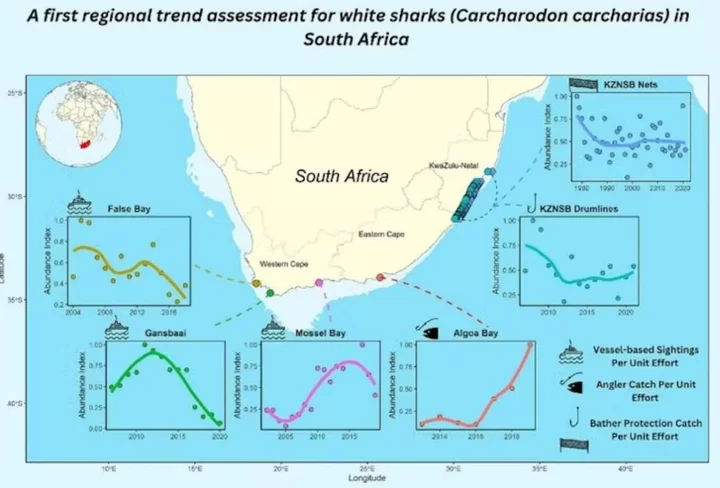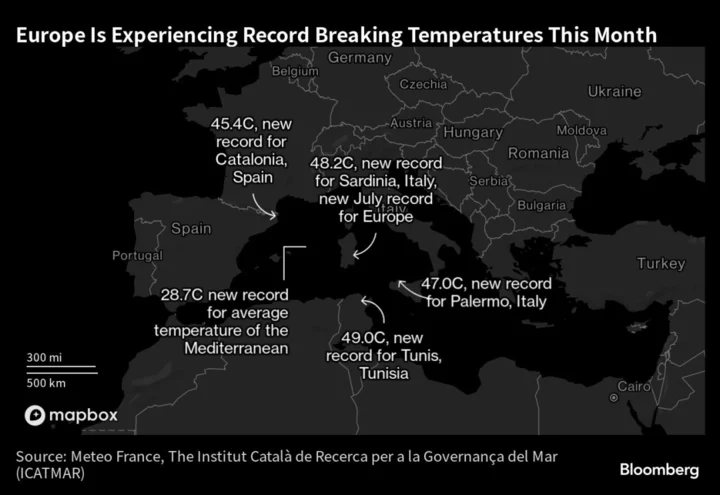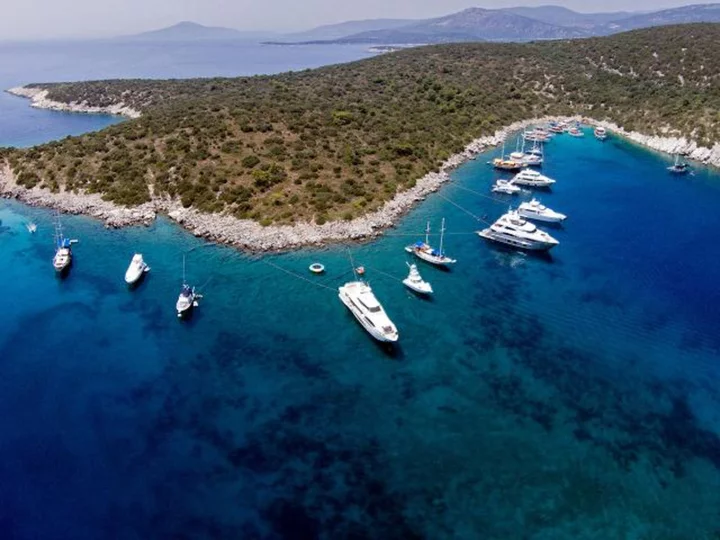An eastward shift by one of the world’s biggest populations of great white sharks is increasing the need for safety measures on South African beaches where bathers aren’t used to the presence of the 2-ton predators.
A recent study, the biggest survey to date of white shark populations off the South African coast, and a new shark-spotting program provide the most definitive evidence yet that the largest predatory sharks have mostly left the Western Cape region and headed east.
Evidence ranging from the number of great whites caught by shore anglers, to shark spotting and entanglements in nets off some of the country’s eastern beaches were assessed in the study, titled Decline or shifting distribution? A first regional trend assessment for white sharks (Carcharodon carcharias) in South Africa.
“Other areas must look at shark safety,” said Sarah Waries, the chief executive officer of Shark Spotters, which late last year expanded its operations from Cape Town to the beach resort of Plettenberg Bay 450 kilometers (280 miles) to the east, on Wednesday. “There’s more shark activity from Plett eastwards.”
Shark Spotters uses staff who keep an eye out for the fish from vantage points above the beaches and then warn bathers. The expansion to Plettenberg Bay came after two people were killed by great whites last year.
Since setting up, there have been 37 sightings off the town’s beaches, she said. That compares with none off Cape Town since 2019 compared with more than 300 across eight beaches in the city in 2011.
The dominant theories for why the sharks have moved are that they were either scared off by a pair of orcas that began feeding on them in False Bay off Cape Town or that the population of smaller species, which they eat, have plunged due to overfishing. Overall, the researchers said, the white shark population may have shifted, but it seems stable in numbers since they were declared a protected species in 1991.
Other evidence of the eastern shift presented in the study include shore anglers catching 59 great whites in Algoa Bay, about 650 kilometers east of Cape Town, in 2019 compared with six in 2013.
“Changing shark movements could also influence beach safety,” the researchers said in a summary of the study. “Increased signage, temporary beach closures, or improved education about shark behavior might be needed.”









